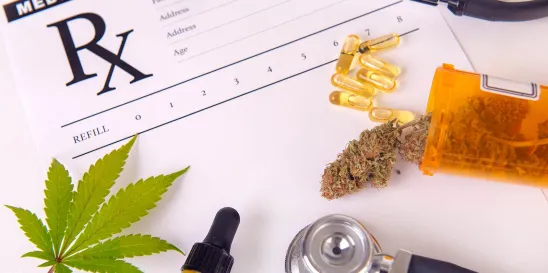Autism Spectrum Disorders (ASD) are lifelong neurodevelopmental conditions that usually appear in infancy or early childhood, and for which no single cause has been identified. ASD core symptoms include restricted or repetitive behaviors, limited interests, and difficulty with language, learning, and social interactions. The incidence of ASD is increasing dramatically. When my son was diagnosed with ASD in 1992, the incidence was 1 in 10,000 kids. In 2020, the CDC estimated that 1 in 36 kids had ASD. Because there are no medical tests available, diagnosis is based on behavioral and developmental assessments.
ASD is often accompanied by attention deficit hyperactivity, gastrointestinal, obsessive compulsive, seizure, sensory processing, and sleep disorders. Behavioral manifestations may include aggressiveness, rage, self-injury, and sensory impairments.
Treatment consists of behavioral interventions that yield varied results. Only two pharmaceutical medications have been approved by the FDA for use in ASD, but they do not treat the core symptoms of ASD and are only intended for management irritability and aggression: risperidone for children ages 5 to 16 and aripiprazole for children ages 6 to 17. These two antipsychotics have many potential side effects, including metabolic disorders and tardive dyskinesia, a condition characterized by involuntary repetitive movements that can become permanent. Many other medications not intended for treatment of ASD are used with varied results. With such staggering increase in the rates of ASD, effective medical treatment is urgently needed.
Only two pharmaceutical medications have been approved by the FDA for use in ASD, but they do not treat the core symptoms of ASD and are only intended for management irritability and aggression.
I have been following research on the treatment of ASD with medical cannabis, defined as the use of cannabis sativa plant derivatives for medical purposes. The cannabis sativa plant contains compounds called cannabinoids, the two main ones being the non-psychoactive compound cannabidiol (CBD) and the psychoactive compound delta-9-tetrahydrocannabinol (THC). CBD extracted from hemp, a different variety of the cannabis sativa plant, has 0.3 percent or less THC.
Medical cannabis targets the endocannabinoid system, a unique cell signaling network composed of cannabinoids like the ones in the cannabis plant. The endocannabinoid system plays a critical role in regulating sleep, temperature, pain, immune function, inflammation, learning, memory, and emotions. Recent studies have revealed that the endocannabinoid system is dysfunctional in individuals with ASD, creating interest in studying the use of medical cannabis for ASD.
Research has demonstrated that after treatment with medical cannabis, individuals with ASD had reduced episodes of self-injury and rage, and improvements in hyperactivity, sleep, and anxiety. Adverse effects included mild somnolence and appetite changes. A 2021 study identified 65 potential cannabis-responsive biomarkers that trended toward normal physiological levels after cannabis treatment. The authors proposed further research of metabolic profiles likely to respond to medical cannabis. Study conclusion challenges have included the varied level of disabilities among study subjects, lack of objective measuring tools, and the variety of products used, whether CBD-dominant or THC-dominant, or a combination of CBD and THC.
Research has demonstrated that after treatment with medical cannabis, individuals with ASD had reduced episodes of self-injury and rage, and improvements in hyperactivity, sleep, and anxiety.
Epidiolex, a CBD extract, has been approved by the FDA for treatment of specific seizure disorders. The FDA has not approved any cannabis-derived products for treatment of ASD. There are, however, reasons to be hopeful. It is currently legal in 15 states to prescribe medical cannabis for autism. Plus, on August 30, 2023, the US Department of Health and Human Services issued a recommendation to reschedule cannabis from a Schedule I controlled substance to a Schedule III controlled substance. The US Drug Enforcement Administration is reviewing the recommendation and has final authority over rescheduling cannabis. If DEA adopts the recommendation, cannabis would remain federally prohibited, but researchers would have greater flexibility in conducting studies of the drug and its effects on human health. While the recommendation does not call for descheduling cannabis completely, it is a move in the right direction.
Research on medical cannabis and ASD is still in its early stages. Continued well-controlled clinical trials are needed to establish treatment guidelines and long-term safety of cannabinoid products. As a mother of son with ASD, I am encouraged by the ongoing research and promising results of medical cannabis as a potential treatment for ASD.




 />i
/>i
